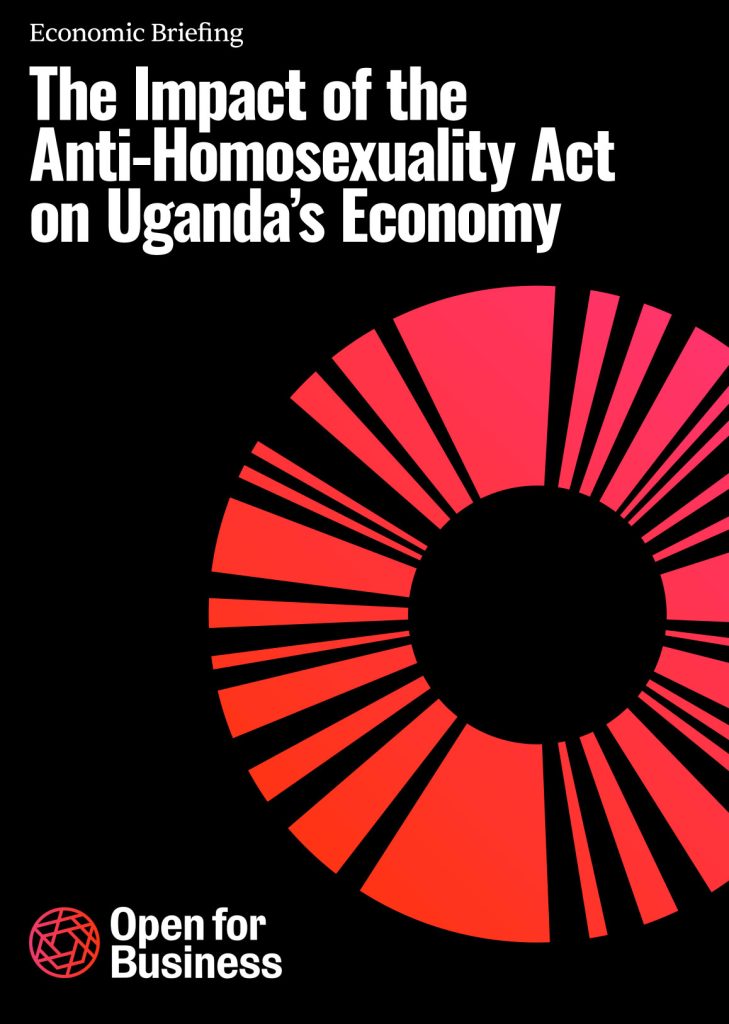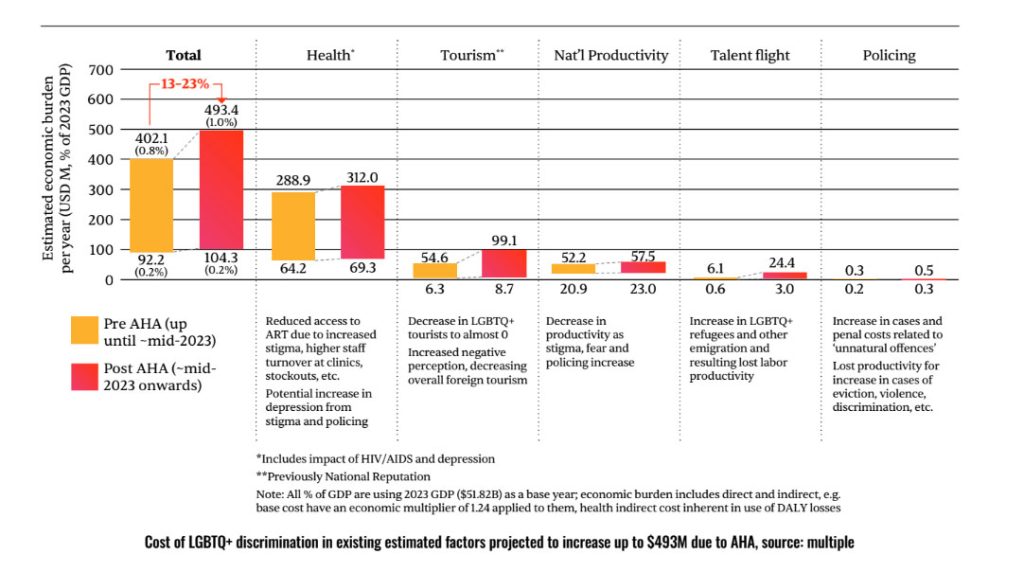Anti-LGBT law costs Uganda up to $1.6 billion annually
Joto La Jiwe is a Ugandan correspondent for the African…
New report says Uganda must repeal Anti-Homosexuality Act to rebuild investor confidence

The Anti-Homosexuality Act (AHA) has made it harder for Uganda to foster a dynamic and diversified middle income or modern economy that is attractive to investors, tourists and skilled workers, according to a new report published by Open for Business, a coalition of leading global businesses advocating for LGBTQ+ inclusion.
The report reveals that in the 12 months following the passage of the AHA, the resulting economic losses are estimated to be between USD$470 million to $1.6 billion. Those losses translates to between 0.9% and 3.2% of Uganda’s GDP, marking a fivefold increase from previous estimates before the legislation was enacted. The report authors estimate that combined losses over a five-year period could be between USD$2.3 and $8.3 billion.
Foreign direct investment (FDI), international aid, trade and tourism, as well as impacts on public health and productivity are singled out by the report as the areas of the economy most impacted by the AHA.
The report projects that Uganda risks losing USD$276–$1,024 million annually due to halted funding and potential aid cuts – accounting for approximately half of the potential economic burden.

According to the report, the direct cost to the Ugandan economy of reduced Foreign Direct Investment as a result of the AHA is estimated between USD$48–75 million annually, and the long-term indirect economic impact of this may be much higher.
When it comes to Public health, the report notes that AHA exacerbates public health challenges, particularly in managing HIV and AIDS, with projected losses of USD$70-$312 million annually.
“The law’s stigmatization of LGBTQ+ individuals hinders access to essential health services, contributing to a worsening public health crisis,” says the report.
The tourism sector is a crucial pillar of Uganda’s economy, but the report findings show that the sector could suffer losses of USD$9–$99 million due to the negative international perceptions fostered by the AHA.
The report cites the suspension of Uganda’s access to lower trade barriers with the U.S. via the African Growth and Opportunities Act, noting that this is expected to result in a loss of approximately USD$0.5 million in future tariff payments, with broader implications for exports.
The AHA is likely to drive away 5,000–15,000 skilled individuals, resulting in an annual productivity loss of USD$3–$24 million. The loss of human capital, particularly in a developing economy, can have long-term detrimental effects on Uganda’s growth prospects. The country’s productivity is estimated to reduce by USD$23-$58 million annually.
The enforcement of the AHA alone is projected to incur an additional USD$0.3–$0.5 million annually in additional policing and legal costs. The report argues these costs represent an unnecessary drain on national resources, which could be better invested in inclusive and equitable development initiatives.
If Uganda continues to enforce the AHA without addressing international concerns, the economic landscape is expected to deteriorate further, leading to severe economic isolation.
“FDI and aid could decline sharply, tourism might collapse, and trade sanctions could be imposed by key partners,” the report suggests.
Under this scenario, the report says that the Economic losses could approach the upper estimate of $1,663 million USD annually, with GDP impacts surpassing 3.2%.
The report suggests the economic burden can be contained if Uganda takes steps to repeal the AHA, restoring some degree of international confidence. This could result in partial recovery of foreign direct investment and aid, along with stabilization of tourism and trade relations.
Under this scenario, economic losses might be contained within the lower range of $470 million USD annually, with a GDP impact closer to 0.9%.
Without such measures, the report concludes that the Act’s consequences could push Uganda into a cycle of economic stagnation and increased poverty, threatening the country’s long-term economic sustainability.


